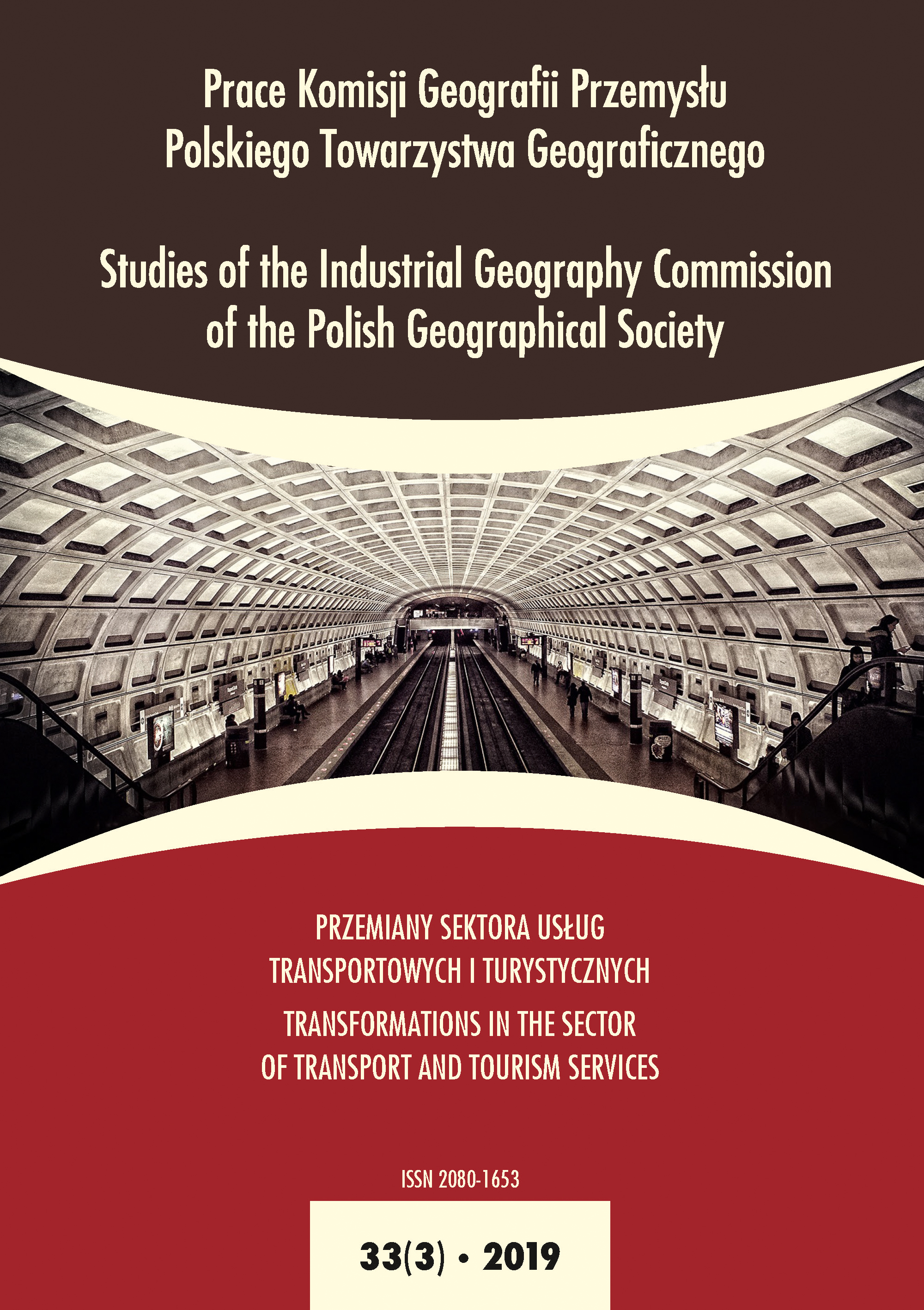Innovation, Income, Education – Spatial Analysis of Poland
DOI:
https://doi.org/10.24917/20801653.333.1Keywords:
economic development, higher education, innovations, income, income per capita, level of development, level of educationAbstract
Innovation, income and education are categories whose apparent dependence seems to be obvious. The problem arises when we attempt to analyse the importance of lunching innovations in the economy for the average citizen, or how the increase in the value of human capital translates into the income of the average citizen. The article presents indicators, divided into Polish voivodeships (regions), defining the level of innovation (Wi), income (Wd), and level of education (Ww). Then, based on the value of these indicators, the interrelations between innovation, income and education level was examined. In order to calculate individual indices we used a relative coefficient of an aggregate measure of arithmetic means from diagnostic variables that were subjected to unitarisation. At the outset, diagnostic variables were eliminated, assuming the coefficient of variation at the level of v < 0.1, and then eliminated explanatory variables were correlated at the level of r > 0.8. The calculations show that in each category the Mazowieckie Voivodeship had the highest values, in the category of innovation the lowest value was obtained by the Warmińsko-Mazurskie Voivodeship, the Lubuskie Voivodeship received the lowest value for the indicator of educational level, and the lowest value of the income index was obtained by the Podkarpackie Voivodeship. Indices of innovation and level of education for individual voivodeships are strongly correlated. The Pearson’s linear correlation reaches the value of 8 r(16) = 0.7 at the level of significance p = 0.003. Research in this area may be an inspiration for a deeper study of the impact of the above indicators on other economic variables.
Downloads
Metrics
References
Acemoglu, D., Gallego, F.A., Robinson, J.A. (2014). Institutions, human capital and development. Annual Review of Economics, 6, 875–912.
Ashford, N.A. (2002). Government and environmental innovation in Europe and North America. The American Behavioral Scientist, 45(9), 1417–1434.
Bank Danych Lokalnych (2019, 10 grudzień). Główny Urząd Statystyczny. Pozyskano z https:// bdl.stat.gov.pl/BDL/start
Baumol, W.J. (2005). Education for Innovation: Entrepreneurial Breakthroughs versus Corporate Incremental Improvements. Innovation Policy and the Economy, 5, 33–56.
Bossink, B.A.G. (2002). A Dutch public-private strategy for innovation in sustainable construction. Construction Management and Economics, 20, 633–642.
Dojrzałość innowacyjna przedsiębiorstw w Polsce (2018, 10 grudnia). Raport KPMG. Infografika. Pozyskano z https://assets.kpmg.com/content/dam/kpmg/pdf/2016/03/infografika-dojrzalosc- innowacyjna.pdf
Gajda, W. (2015). Innowacyjność polskiego przemysłu na tle przemysłu światowego. Prace Komisji Geografii Przemysłu Polskiego Towarzystwa Geograficznego, 29(1), 42–55.
Gennaioli, N., La Porta, R., Lopez-de-Silanes, F., Shleifer, A. (2013). Human capital and regional development. Quarterly Journal of Economics, 128, 105–164.
Jones, C.I., Romer, P.M. (2010). The new kaldor facts: Ideas, institutions, population, and human capital. American Economic Journal: Macroeconomics, 2, 224–245.
Klóska, R. (2010). Innowacyjność województw w Polsce. W: L. Woszczek, T. Grabiński, A. Tabor (red.). Rozwój ekonomiczno-społeczny mikro i makroregionów. Część I. Chrzanów: Szkoła Przedsiębiorczości i Marketingu w Chrzanowie, 59–66.
Kwaśnicki, W. (2015). Innowacje społeczne – nowy paradygmat czy kolejny etap w rozwoju kreatywności człowieka? W: W. Misztal, G. Chimiak, A. Kościanski (red.). Obywatelskość wobec kryzysu: uśpieni czy innowatorzy. Warszawa: Instytut Filozofii i Socjologii Polskiej Akademii Nauk, 23–58.
OECD, Eurostat (2018). Oslo Manual 2018, Guidelines for Collecting, Reporeting and Using Data on Innovation, 4th Edition, The Measurement of Scientific, Technological and Innovation Activities. Paris: OECD Publishing. Luxembourg: Eurostat. Pozyskano z https://doi.org/10.1787/9789264304604-en
Patanakul, P., Pinto, J.K. (2014). Examining the roles of government policy on innovation. The Journal of High Technology Management Research, 25(2), 97–107.
Rocznik statystyczny przemysłu 2017 (2019, 10 grudnia). Pozyskano z https://stat.gov.pl/files/ gfx/portalinformacyjny/pl/defaultaktualnosci/5515/5/11/1/rocznik_statystyczny_przemyslu_ 2017.pdf
Rocznik statystyczny województw 2016 (2018, 10 grudnia). Pozyskano z https://stat.gov.pl/obszary- tematyczne/roczniki-statystyczne/roczniki-statystyczne/rocznik-statystyczny-wojewodztw- 2016,4,11.html
Schumpeter, J.A. (1960). Teoria rozwoju gospodarczego. Warszawa: Wydawnictwo Naukowe PWN.
Sedlak & Sedlak (2018, 10 grudnia). Ogólnopolskie badanie wynagrodzeń przeprowadzone w 2017 roku. Pozyskano z http://wynagrodzenia.pl/t/ogolnopolskie-badanie-wynagrodzen- np
Solow, R.M. (1957). Technical Change and the Aggregate Production Function. Review of Economics and Statistics, 39, August, 312–320.
Szkoły wyższe i ich finanse w 2016 (2018, 10 grudnia). Pozyskano z https://stat.gov.pl/obszary- -tematyczne/edukacja/edukacja/szkoly-wyzsze-i-ich-finanse-w-2016-r-,2,13.html
Wach, K. (2014). Paradygmat gospodarki przedsiębiorczej a polityka wspierania przedsiębiorczości (rozdział 1). W: K. Zieliński (red.). Formy i przejawy współczesnej przedsiębiorczości w Polsce. Warszawa: Difin, 13–30.
Wiktorska-Święcka, A., Kozak, K. (2015). Partycypacja publiczna w zarządzaniu rozwojem lokalnym. Warszawa: Atut.
Downloads
Published
How to Cite
Issue
Section
License
Articles are published under the terms of the Creative Commons License (CC BY-ND 4.0; Attribution– NoDerivs).

